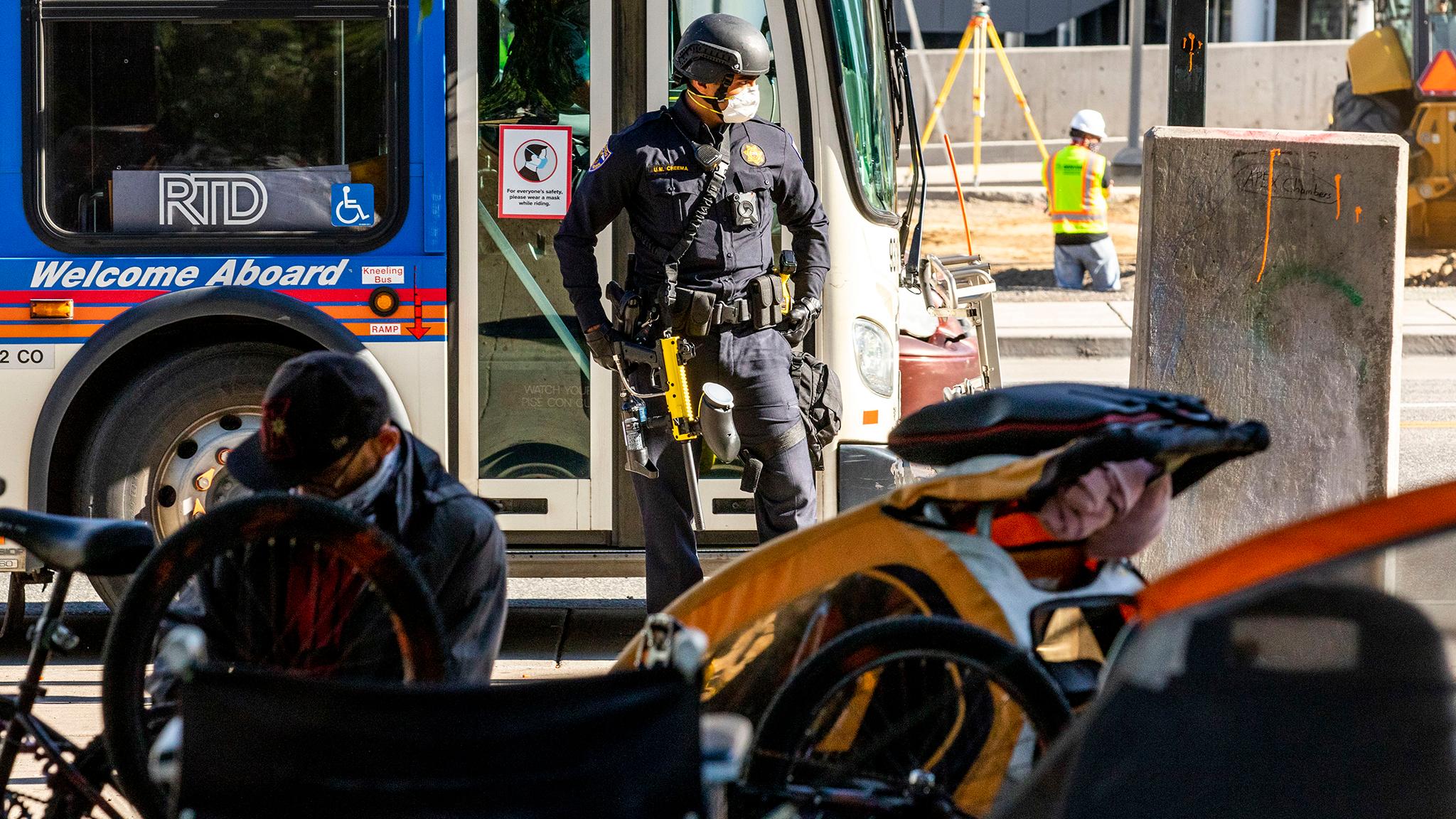"These aren't the people who are going out and assaulting people," Nathaniel Baca, an attorney working for the public defender's office, told Denver City Council members Wednesday. "These are people who are sleeping on park benches."
Baca was talking about the group that comprises 38 percent of the cases in municipal court: people experiencing homelessness. They get arrested for things like trespassing, drinking in public and violating park rules, then enter a judicial system unequipped to serve their special needs. More than half of the time, that mismatch leads to probation violations, Baca said, which plunges unhoused Denverites deeper into the system.
And about 70 percent of the scofflaw cases involving unhoused people get dismissed, according to a study by the Office of the Municipal Public Defender of more than 6,000 cases from 2018 -- but not before arrestees spend money and time going through the criminal justice system.
"They have to go through a number of hoops only to arrive six months or a year later where the case is going to get dismissed," Baca said. "So we think this is a fairly substantial problem, especially given this population. This is a revolving door regarding homeless people who we believe could be served better."
Taxpayers bankroll the bureaucratic journey, which requires police officers, sheriff deputies, public defenders, administrators and so on. Council President Stacie Gilmore suggested removing police officers, who are locking people up for nonviolent crimes like trespassing when social services would serve them better, from the equation.
"I can imagine that potentially our costs are astronomical when we're just, at the end of the day, trying to get someone connected to services," Gilmore said. "And unfortunately they have to get rolled up into the system to do that."
The outsize role of homelessness in municipal cases isn't the only stark fact to come out of the study. In a city that's almost nearly 10 percent Black, African Americans make up about 30 percent of the people in the municipal court system.
In other words, Denver police officers arrest Black people at a rate that's disproportionate to the population. If you look at charges for interference and resisting arrest, that figure rises to more than 36 percent.
Statistics from the judicial side of things show that inequality may start with law enforcement, but it doesn't stop there. Black people charged with those offenses went to jail 75 percent of the time while non-Blacks went to jail just 43 percent of the time, the study found.
"So what we can see from these statistics are symptoms of underlying problems of ... systemic oppression, discrimination, and racism," Baca said.
It took two years, but now Denver's top public defender has a few bucks to soften a rigid system with socially minded interventions.
Chief Public Defender Alice Norman suggested that the city asks police officers to do too much -- to be enforcers, mediators, therapists, social workers, case managers and mental health experts all at once. As a result, people are arrested and enter a bureaucracy not attuned to their needs.
"I believe there is a real need for what I call the front-end of the system -- meaning how do we keep them from ever getting in the system?" Norman said. "But we meet people when they have become our clients, after the police involvement. And so our goal then becomes to reduce recidivism and connect our clients to services and to make sure that there is no subsequent interaction of the same manner."
Norman just now got a $121,000 federal grant she applied for two years ago that will let her department hire a social worker and one or two aides to connect people to services, whether they be for food benefits, shelters, bus passes, mental health treatment, or anything else that might help people out of the spiral.
"If somebody's shoplifting because they're hungry ... an immediate connection from our office could connect them to SNAP benefits that could stop this cycle," Norman said.
The grant represents about 5 percent of the public defender's budget and is only temporary. If it gets renewed, Norman said, it will be for less money. Yet once word gets out about the program, she believes she will need three or four more social workers to make it really worthwhile.
"Grants are tenuous. We can't depend on them," Gilmore said. "And when we're looking at changing systemic racist systems in our government, having the general fund or having a sustainable funding stream to continue these programs into the future are so important."
Norman said she hopes to find the money in the 2021 city budget, being meted out right now, but Denver faces massive budget cuts because of COVID-19.














